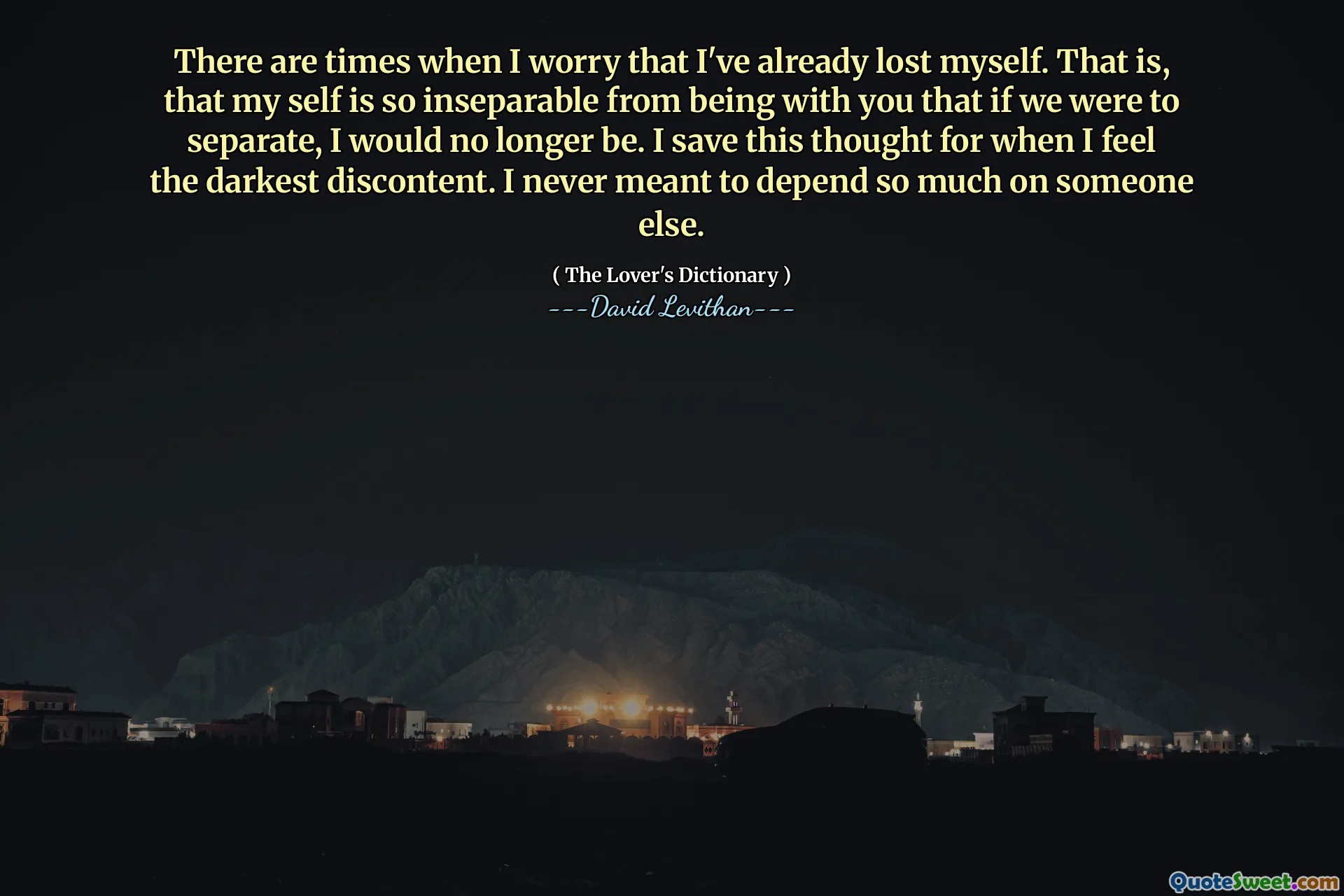
There are times when I worry that I've already lost myself. That is, that my self is so inseparable from being with you that if we were to separate, I would no longer be. I save this thought for when I feel the darkest discontent. I never meant to depend so much on someone else.
This quote delves into the profound interconnectedness that can develop between two individuals in a relationship. It captures the delicate boundary between love and dependence, illustrating how intimacy can sometimes blur the lines of personal identity. The speaker's concern about losing themselves reflects a universal fear: that to truly love and be loved might entail sacrificing parts of oneself. The acknowledgment that their identity becomes so intertwined with the other person suggests a relationship that provides both comfort and a potential threat to independence.
Analyzing this, one might consider the emotional complexity involved in such dependence—while it can foster closeness and trust, it also poses risks of losing autonomy and self-awareness. The feeling of darkness when contemplating separation underscores the fear of erosion of one’s sense of self, which can evoke feelings of vulnerability and insecurity.
This quote resonates because it explores the nuanced balance between loving someone genuinely and maintaining one’s individual integrity. It prompts reflection on how relationships shape our identities and the importance of self-awareness within emotional bonds. The honesty in admitting dependency reveals the courage required to confront one’s fears about loss and change in the context of love.
Ultimately, the quote invites us to reflect on the depth of our connections—how they can become an integral part of our identity, and how we can preserve ourselves while opening ourselves to profound intimacy. It underscores the tension between unity and individuality that is often at the heart of meaningful relationships.







